A chat with UNE PhD student, Stephanie Richter-Stretton
Earth Science Week
8 - 14 October, 2023
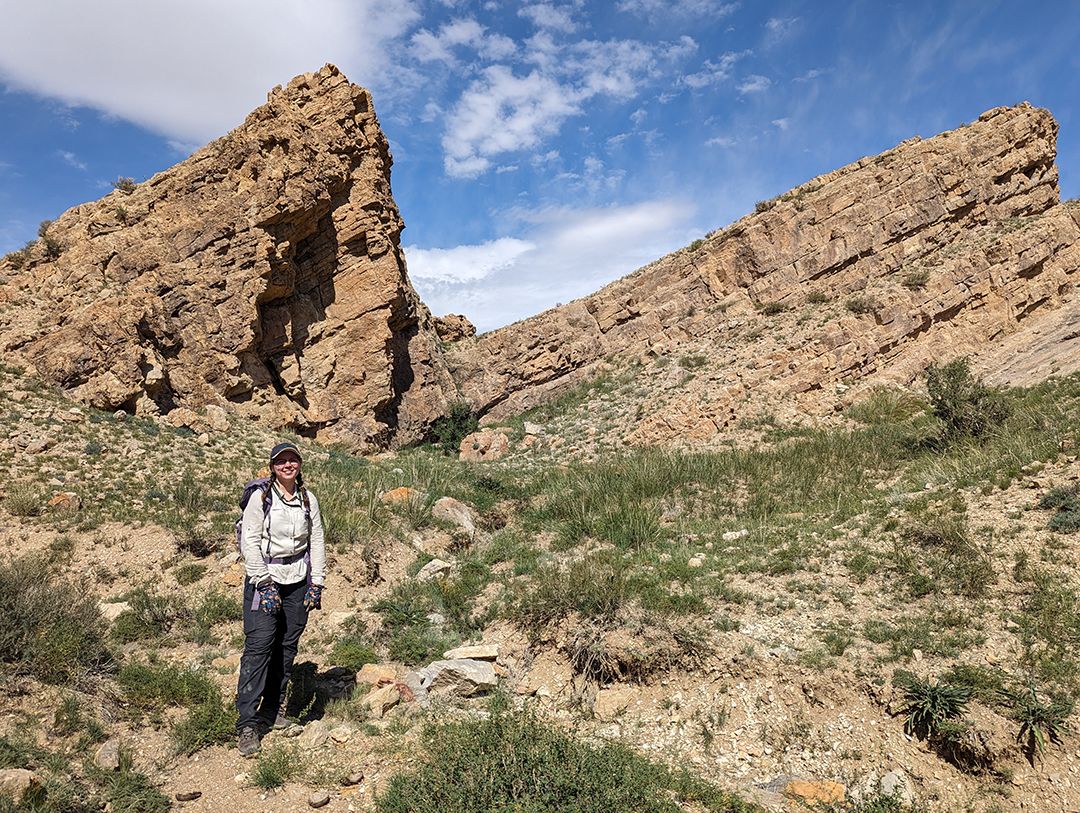
Stephanie-Richter Stretton remembers being a curious child with a burning desire to always ask the question, ‘why?’.
With this natural spirit of inquiry, it’s no surprise that her school holiday visits to admire dinosaurs and prehistoric relics at some of rural Queensland’s famous museums would eventually lead her to discover her true calling in life.
At the ripe age of 11, Steph decided on a career in the Earth Sciences, and now, halfway through her PhD, it's clear she hasn’t looked back.
To celebrate Earth Science Week this 8 – 14 October, we caught up with Steph to find out a bit more about her love of Cambrian palaeontology, and what she would say to someone considering a career in Earth Science.
Tell us about your research?
I currently research Cambrian palaeontology – which was a really exciting time in Earth’s history. The Cambrian period began about 538 million years ago, and it was during this time that we see a rapid diversification of life and the appearance of most animal groups in the fossil record for the first time. In particular, I’m investigating the relationship between some of these first complex animals and the first animal-built reefs. I also study the processes that led to a fossil becoming fossilised, and at the moment, I’m investigating the unusual preservation we see at Australia’s only Cambrian-aged exceptional soft-bodied preservation site, the Emu Bay Shale.
Why are you interested in this?
I’ve always been really interested in how the amazing diversity of animal life we see today came to be, and studying one of the first major evolutionary events is a pretty good place to start! I also love that as part of working on fossilised marine life, I get to study the carbonate rocks they’re preserved in as well, which keeps both palaeontology and geology in my life. But the short answer: simple zest for (prehistoric) life!
Where did your love of Earth Science begin?
I think I’ve loved Earth Science for as long as I can remember. I was always a very curious child, and wanted to know why everything is the way it is. The idea that Earth Sciences could be career pathway for me was really cemented by visits to museums in rural Queensland with my family during the school holidays – in particular I was in love with dinosaurs and with the landscapes (took me quite a few years to realise I was actually in love with the geology). I think I was about 11 years old when I decided, with as much certainty as an 11 year old can muster, that I was going to be a Palaeontologist when I grew up.
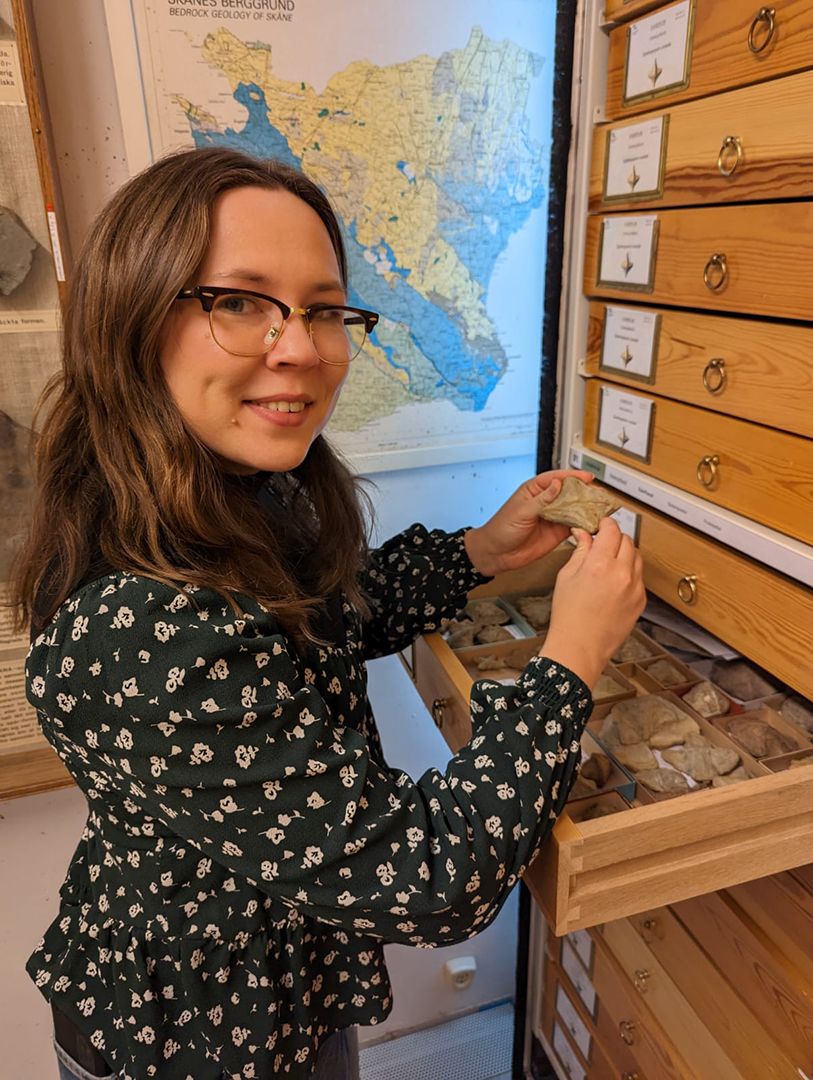
Steph at the Swedish Natural History Museum
Steph at the Swedish Natural History Museum
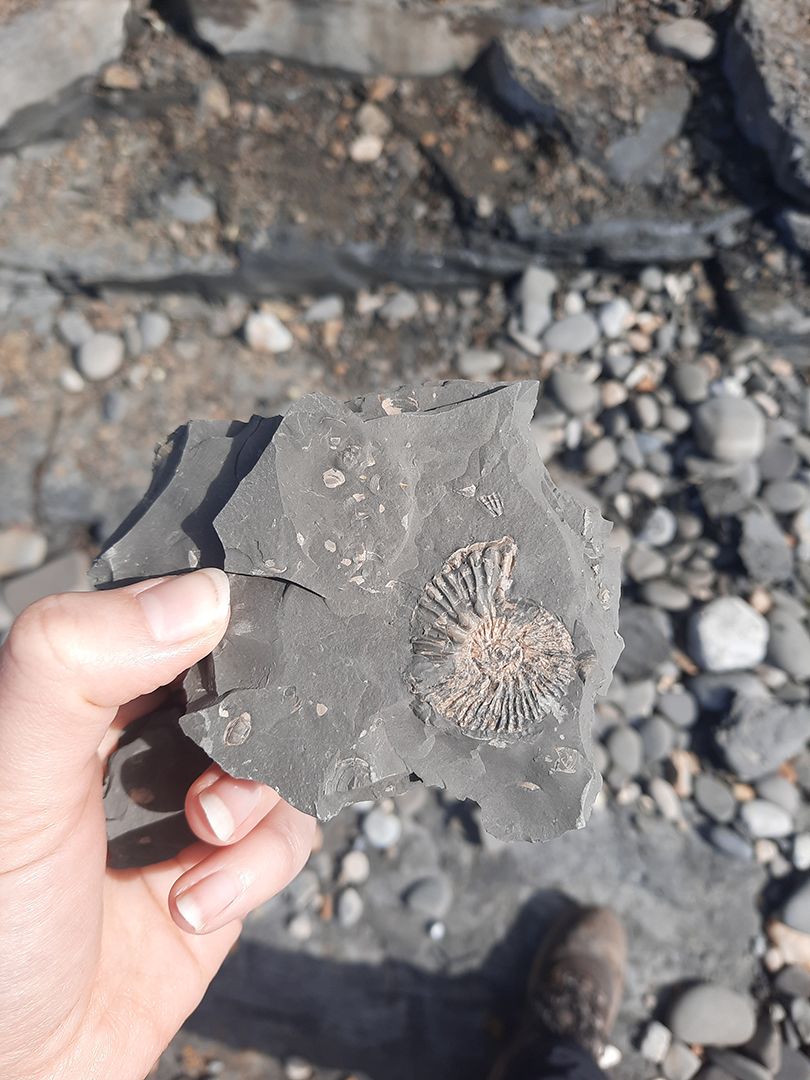
Ammonite, Kimmeridge Clay, UK
Ammonite, Kimmeridge Clay, UK
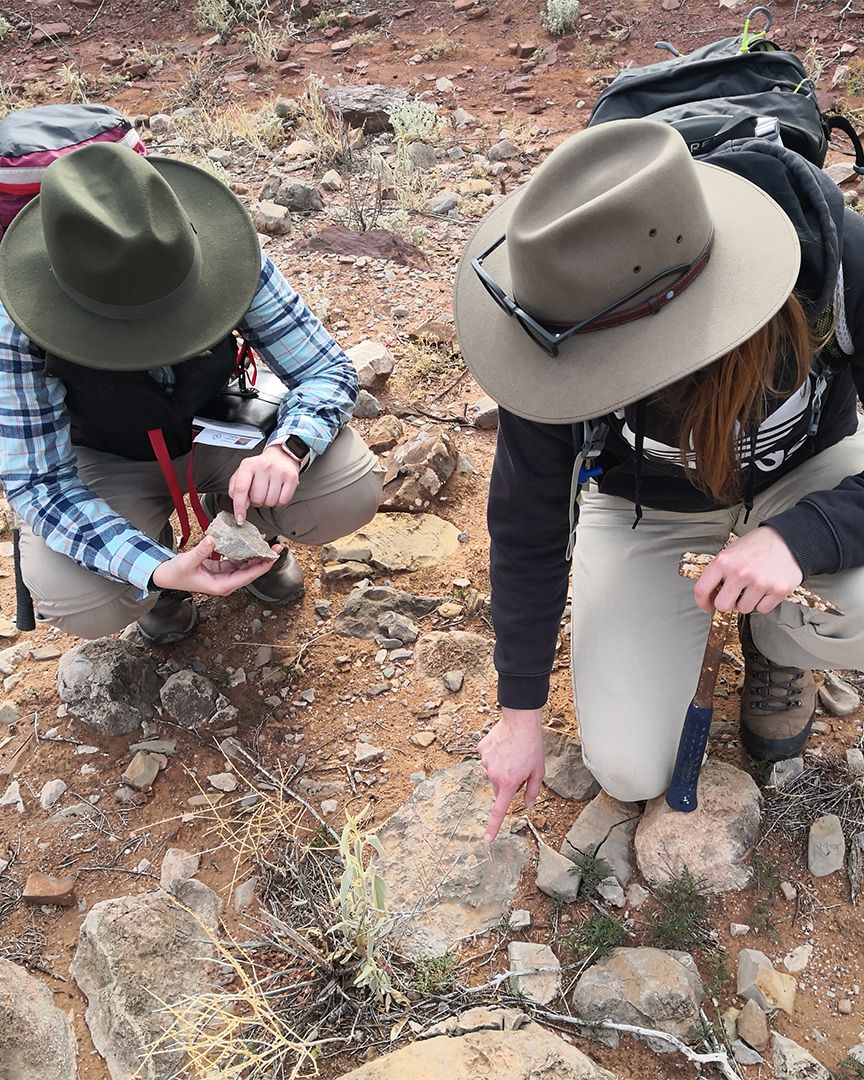
Flinders Ranges, with supervisor Marissa Betts
Flinders Ranges, with supervisor Marissa Betts
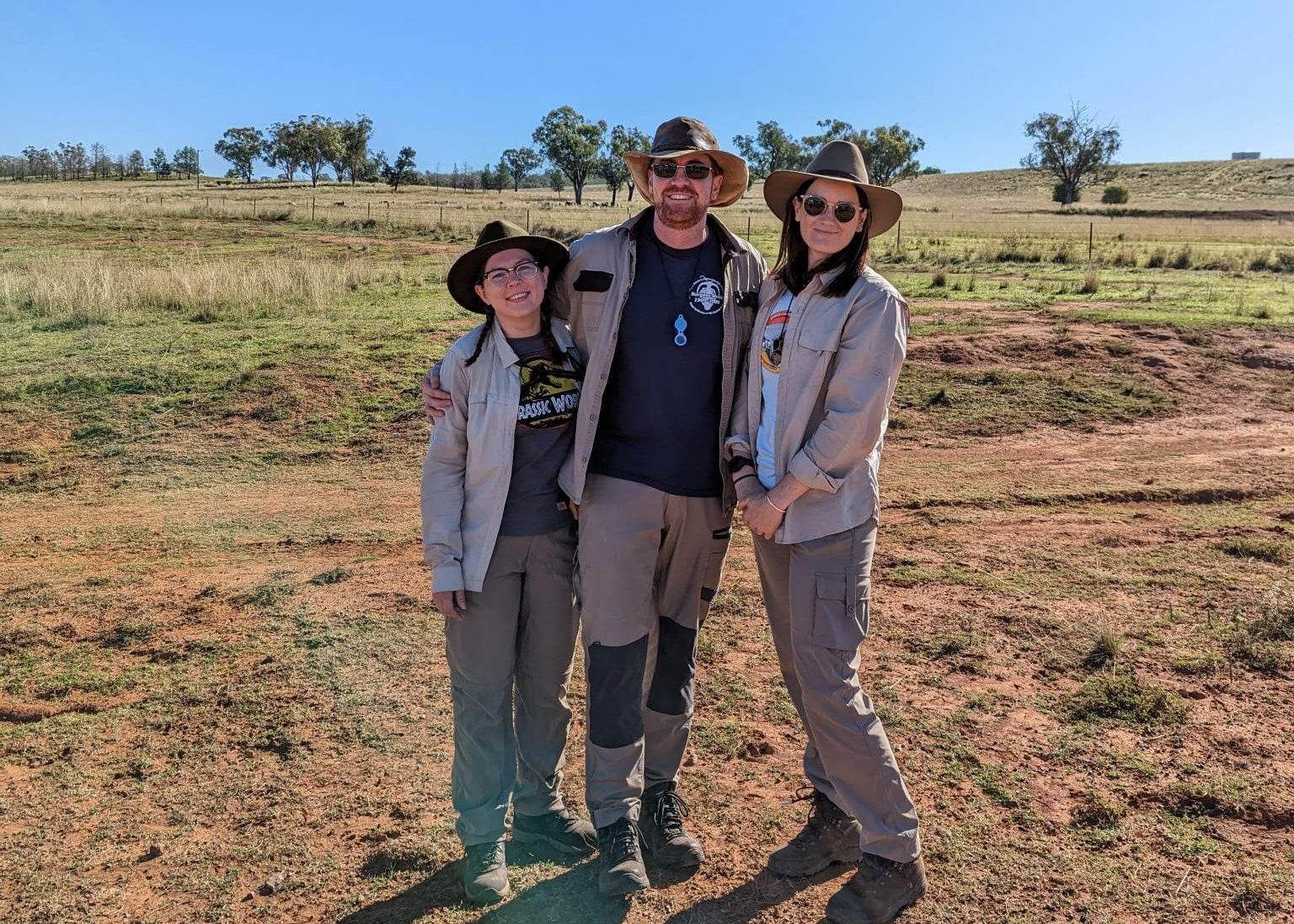
Steph with her PhD supervisors Professor John Paterson and Dr Marissa Betts.
Steph with her PhD supervisors Professor John Paterson and Dr Marissa Betts.
Tell us about a field trip or experience during your time at UNE that has been most valuable/memorable for you?
This is a tricky one, as I’ve been involved in so many field trips during my time at UNE that have been so valuable to me. If I had to pick one, it would be my most recent field trip to Mongolia. It was really exciting as I was collecting samples for my PhD, as well as contributing to a much larger research project – plus it was my first time in Mongolia! The experience was so special as I got to see amazing geology and fossils, and work with some wonderful colleagues (who are now life-long friends) from around the world. It didn’t come without its challenges – but it really proved to me what I am capable of, and that’s one of the most valuable lessons you can learn.
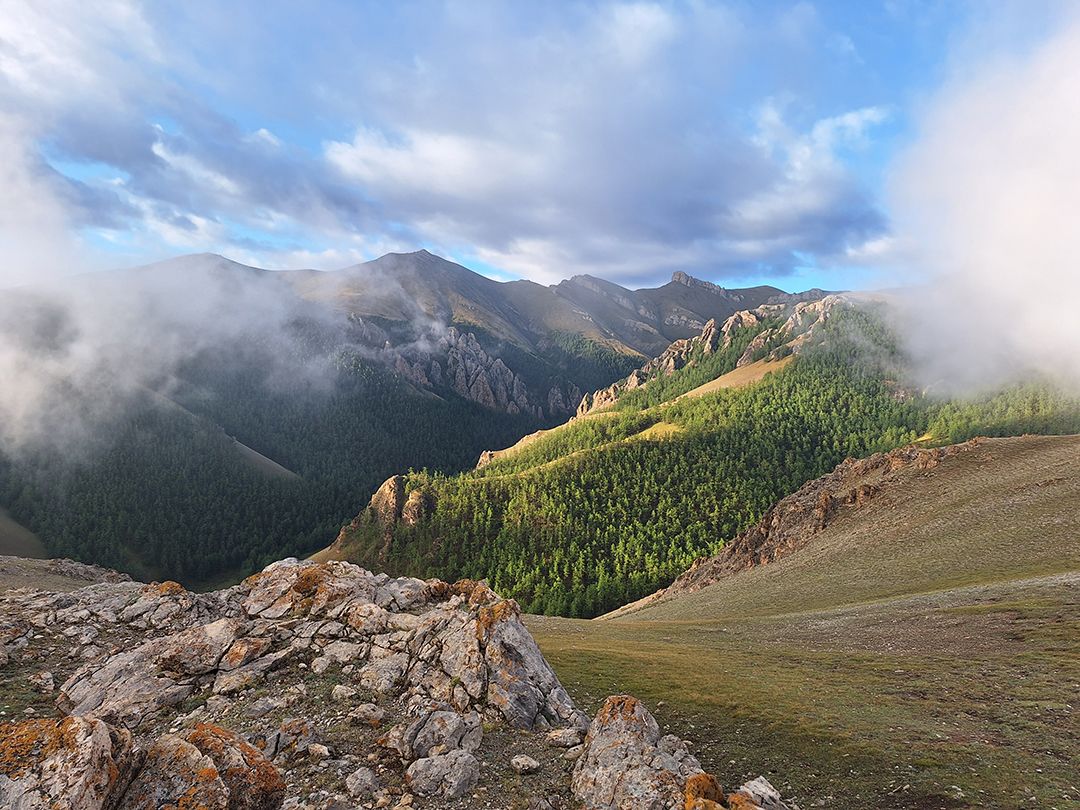

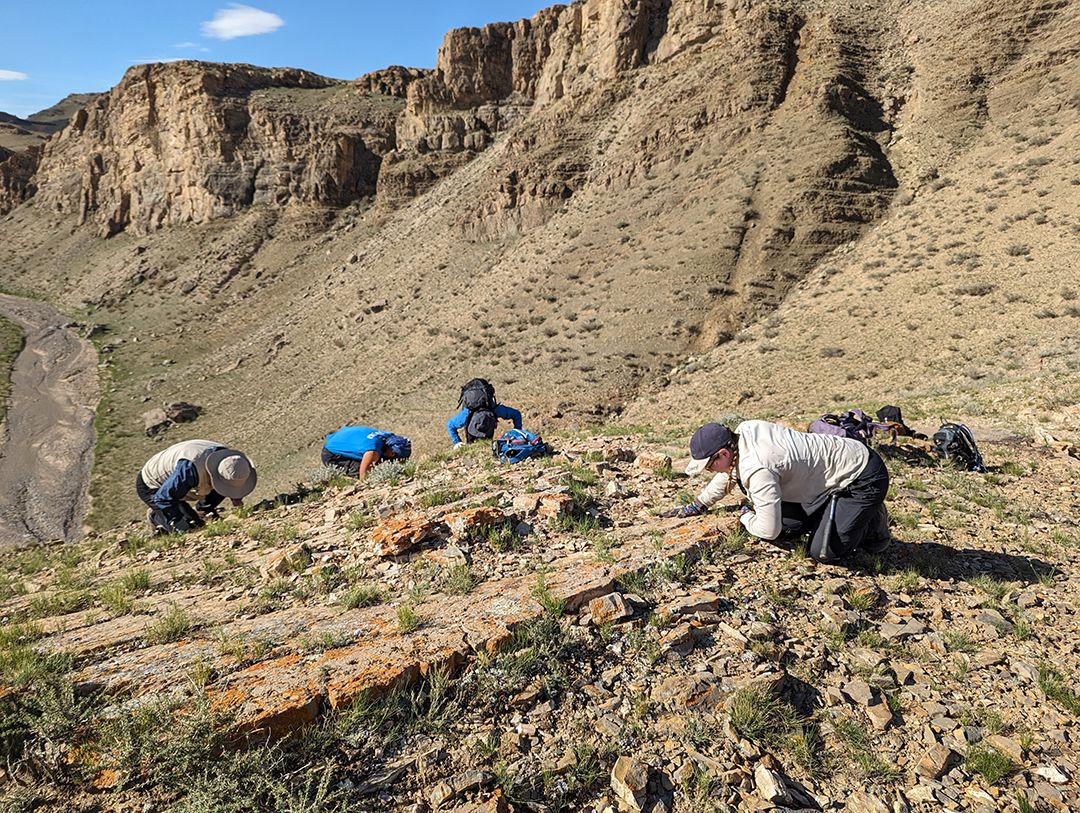



What is something people might not know about the Earth Science discipline?
There’s a whole lot more to it than mining! Earth Science covers everything from environment, to past life, to climate, to extra-terrestrial planets and beyond!
Why should somebody consider studying in the Earth Sciences?
I really think Earth Sciences has got something for everyone, and can open the door to many wonderful opportunities. Studying Earth Science at UNE will take you to some pretty amazing places around Australia and the world, and you’ll be learning to help the planet and its people as you do it!
What are your plans once you graduate?
I’d like to continue working in universities. I really enjoy research, but I also really enjoy teaching! I’ve been lucky enough to help demonstrate on field trips and in laboratory classes, and nothing brings me more joy than working with students and helping them on their journey.

